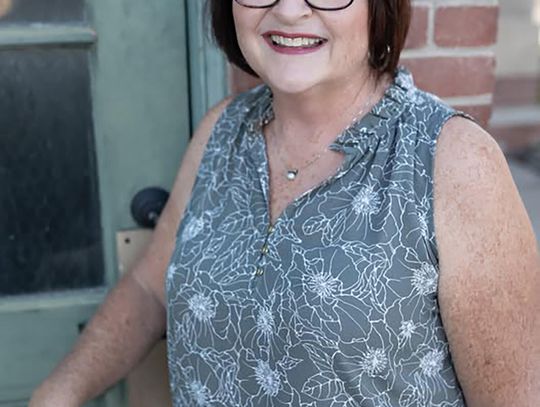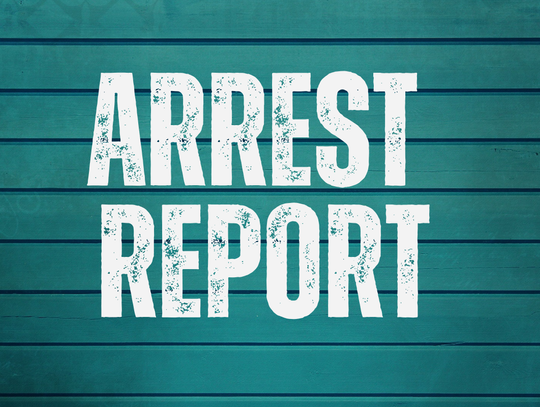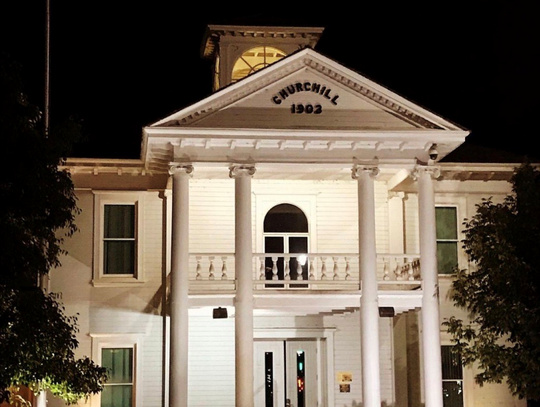The Churchill County Community is taking decisive action to address growing concerns surrounding mental health and suicide prevention. Following eight months of collaboration among local agencies, community leaders, and residents, the Churchill County Behavioral Health and Suicide Prevention Plan 2024 has been formally introduced.
Led by Turning Point, Inc., an independent consulting agency, in partnership with Churchill County Social Services, this effort is all about improving how the community responds to crises. The goal is to make sure people get the help they need when they need it—whether that means better coordination between services or expanding access to mental health support.
In a series of presentations to both the City of Fallon and the Churchill County Commission, Jennifer McClendon of Turning Point and Shannon Ernst, Director of Churchill County Social Services, outlined the key findings of their extensive community assessment. They identified several persistent challenges in mental health services, including:
- A Shortage of Mental Health Professionals: Churchill County faces a serious shortage of licensed social workers and psychiatrists, leaving many residents—especially those with tight budgets—without local care. For those in the justice system, the struggle is even greater, as transportation and cost often make getting help nearly impossible.
- Gaps in Crisis Response and Follow-Up Care: While the community rallies effectively in times of crisis, there has not been a structured post-crisis intervention plan to support ongoing recovery and prevention efforts.
- Lack of Coordination Between Agencies: Despite strong working relationships among community leaders, there is no formalized communication and collaboration framework to streamline mental health response efforts.
- Housing Instability as a Mental Health Factor: The lack of affordable housing continues to contribute to mental health struggles, particularly among individuals transitioning out of the justice system or crisis intervention programs. Without stable housing, many residents fall back into environments that reinforce cycles of substance abuse and mental health distress.
Facing ongoing challenges in mental health care, the goal is to develop a plan focused on long-term solutions. Over the next three to five years, the community will work toward three key goals:
1. Connecting Resources and Services
Several obstacles stand in the way helping residents connect to mental health care and resources. One of the biggest is simply knowing what help is available. The plan includes the development of a shared system for accessing these types of resources to help residents quickly find the support they need without agencies duplicating efforts.
2. Encouraging Open Conversations About Mental Health
Reducing stigma and helping people talk about mental health is a critical component of the plan. Community members reported the need for more events that promote social connection and belonging. Activities like the annual Christmas tree lighting and other community gatherings help foster a sense of support and engagement, which can serve as preventative measures against mental health crises.
3. Creating a Fully Resourced System to Meet Community Needs
Rather than attempting to build new services from scratch, Churchill County will use existing state and federal resources to build better mental health programs. A significant focus is being placed on securing additional funding and recruiting more mental health professionals to the area. The county is also exploring the possibility of a pipeline program for clinical social workers and psychiatrists to increase long-term provider availability.
Community leaders, service providers, and volunteers will continue to meet monthly throughout 2025 to implement and refine the plan, working on resource mapping/gap analysis, tabletop exercises to coordinate crisis response, crisis communication plan, and explore what works in other communities.
One immediate result from this effort is a new telehealth hub at the William N. Pennington Life Center. Along with Silver Summit Healthcare, this telehealth hub will provide locals immediate access to mental health services, making it easier for residents to receive care without traveling long distances.
Additionally, Suji Psychiatry is offering in-person psychiatric care on the fourth Wednesday of each month, with potential expansion based on community demand.
The Churchill County School District has also introduced new school-based suicide prevention programs, including Hope Squad, which empowers students to support peers in crisis. Meanwhile, law enforcement and justice system personnel are working closely with FAST (Forensic Assessment Services Triage) caseworkers to improve intervention strategies for justice-involved individuals experiencing mental health crises.
The work has now been passed to Gabby Stone at the Regional Behavioral Health Task Force, who will continue to lead the plan, which is determined to make meaningful, lasting changes in Churchill County’s mental health landscape. As efforts progress, residents can expect more opportunities to engage with and benefit from the county’s evolving mental health initiatives.
Community members are encouraged to participate in the initiative by joining one of the working groups or attending upcoming Mental Health Awareness Day events. The next major community event is scheduled for May 14 at Churchill Community Coalition, featuring workshops on mental health awareness for parents and the elderly.









Comment
Comments